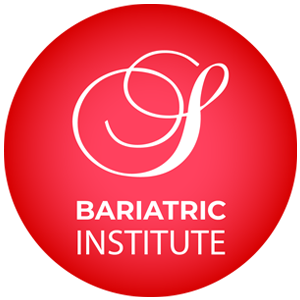What Are the Risks of Endoscopic Gastric Sleeve?
Regain control of your health and transform your life.
The procedure is potentially reversible and has a lower risk of complications compared to open or laparoscopic surgery. However, like any weight loss procedure, there are risks involved, including bleeding, infection, tears in the stomach, leaking of stomach contents, and potential complications related to anesthesia. It is important to carefully consider these risks before undergoing endoscopic gastric sleeve surgery.
- Risks of endoscopic gastric sleeve include bleeding, infection, tears in the stomach, and potential complications related to anesthesia.
- It is important to carefully consider the risks before undergoing endoscopic gastric sleeve surgery.
- Consult with your healthcare team to fully understand the potential complications and make an informed decision.
Potential Long-Term Risks of Endoscopic Gastric Sleeve
While the endoscopic gastric sleeve has shown promising results in terms of weight loss, it is essential to be aware of the potential long-term risks and complications associated with the procedure. These risks include gastric sleeve leaks, nutritional deficiencies, weight regain, ulcers, stenosis, heartburn, and thrombosis. Understanding these risks can help individuals make informed decisions and work closely with their healthcare team to manage and minimize them.
Gastric sleeve leaks, although rare, can occur after the procedure. These leaks may require additional surgical interventions to address the issue and prevent further complications. It is essential for patients to monitor any symptoms such as abdominal pain, fever, chills, or persistent vomiting, as they may be indicative of a gastric sleeve leak.
Nutritional deficiencies are another concern after gastric sleeve surgery. The procedure restricts the amount of food that can be consumed, potentially leading to inadequate nutrient intake. Common deficiencies include vitamins B12, D, and iron. Regular follow-up appointments with a healthcare team are crucial to monitor and address any nutritional deficiencies that may arise.
| Potential Long-Term Risks | Prevention and Management |
|---|---|
| Gastric sleeve leaks | Regular follow-up appointments and monitoring for symptoms |
| Nutritional deficiencies | Personalized nutrition plan and recommended supplements |
| Weight regain | Sustainable dietary and lifestyle changes, ongoing support |
| Ulcers, stenosis, and heartburn | Medications and dietary modifications |
| Thrombosis (blood clot formation) | Early mobilization and preventive measures based on personal and family history |
Anesthesia and Surgical Risks in Endoscopic Gastric Sleeve Surgery
When considering endoscopic gastric sleeve surgery, it is important to be aware of the potential anesthesia and surgical risks involved. While this weight loss procedure is minimally invasive and generally associated with fewer complications compared to traditional surgery, there are still risks that need to be understood.
Anesthesia Risks
Anesthesia is an essential part of any surgical procedure, including endoscopic gastric sleeve surgery. While rare, there is a small risk of adverse reactions or complications related to anesthesia, such as respiratory issues or unexpected reactions to medications. It is crucial to discuss your medical history and any concerns with your healthcare team before the procedure, as they will take steps to ensure your safety during anesthesia.
Surgical Wound Complications
Although endoscopic gastric sleeve surgery does not involve large incisions, there is still a risk of surgical wound complications. These complications may include infection or poor wound healing. To minimize the risk of infection, antibiotics are often administered before and after the procedure. It is important to follow your surgeon’s post-operative instructions carefully to reduce the likelihood of these complications and promote proper healing.
Bleeding Risks
During the endoscopic gastric sleeve procedure, there is a small risk of bleeding. However, this risk is generally low, as the procedure is performed using small stitching instruments and does not require major incisions. Your surgeon will closely monitor you during and after the surgery to ensure that bleeding is controlled and managed effectively.
Infection Risks
Like any surgical procedure, endoscopic gastric sleeve surgery carries a risk of infection. However, steps are taken to minimize this risk, such as the administration of antibiotics and adherence to strict sterile techniques. It is important to report any signs of infection, such as increased pain, redness, or swelling, to your healthcare team promptly.
| Risks | Likelihood | Precautions |
|---|---|---|
| Anesthesia-related complications | Low | Thorough medical history assessment, monitoring during anesthesia |
| Surgical wound complications | Low to moderate | Proper wound care, follow post-operative instructions |
| Bleeding | Low | Careful surgical technique, monitoring during and after the surgery |
| Infection | Low to moderate | Antibiotic administration, adherence to sterile techniques |
Take the First Step Now!
Our specialists are at your service to clarify doubts.
Schedule Your Free Consultation
Take the first step towards a new you. Schedule a consultation today and discover how the Gastric Sleeve Endoscopic Miami procedure can help you achieve long-lasting weight loss results.

